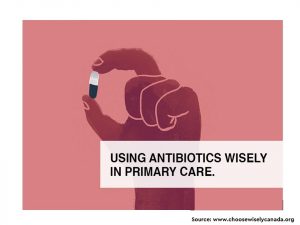Antimicrobial resistance is a public health threat that demands urgent action. AMR leads to reduced effectiveness of drugs like antibiotics resulting in milder and easily treatable infections turning to life-threatening conditions. AMR is increasing due to irrational use of antibiotics and hospital acquired secondary infections.
In a recent commentary, experts such as Pitchforth suggested a broad framework of action in AMR control by drawing parallels between similar policy issues such as ‘climate change’ and ‘tobacco control’ under 3 themes.
- Complexity and uncertainty of problem – The lack of scientific and comprehensive evidence base that can guide decision makers is a core issue in AMR. Evidence generation such as ‘Surgeon General’s report on Smoking and Health, 1964’ for tobacco control and formation of an international panel such as ‘Intergovernmental Panel on Climate Change (IPCC)’ for climate crisis is necessary in the case of AMR control which can inform policy.
- Uneven decision making – A wide variation can be seen across the countries in terms of decision making process and access to antibiotics. Similar issues were faced by tobacco control and climate control actions and the initiatives to address these can be good learning points for AMR control. The Framework Convention on Tobacco Control (FCTC) and a ‘global’ to ‘local’ trend of climate change initiatives serve as examples.
- ‘Social change’ – Social drivers such as cooperation and compliance to the norms/rules need to be recognized and utilized in policy efforts. This was particularly demonstrated in tobacco control as in the public demand for smoking ban and campaigns to ‘cause no harm to others’. In the case of use of antibiotics, it may be more challenging than smoking control since the harmful effects of the latter tends to be more visible.
AMR needs to be considered as a public health priority and the failure to address the same through collective action will lead to disastrous effects. The current situation caused by the pandemic may be viewed as a wake-up call.
To read more, kindly visit the website of BMJ Journals (Link).







